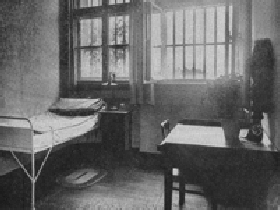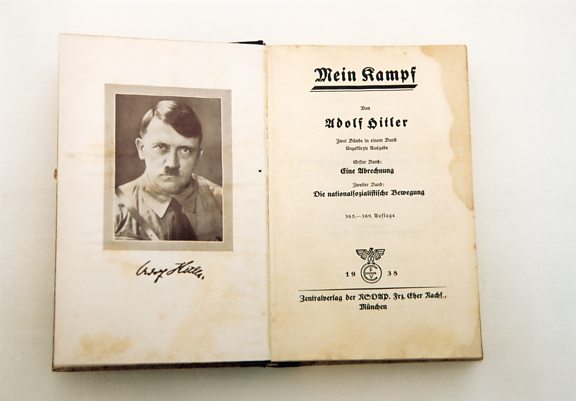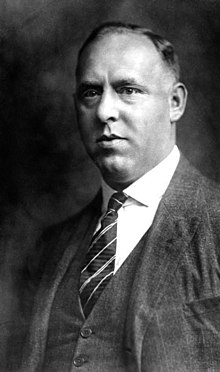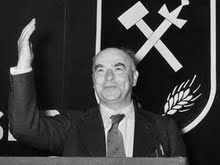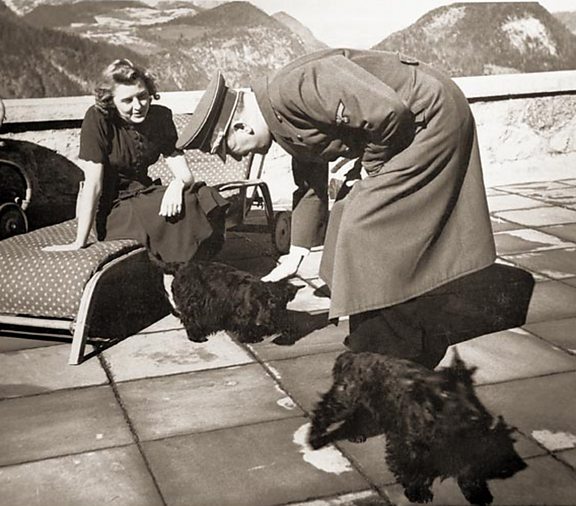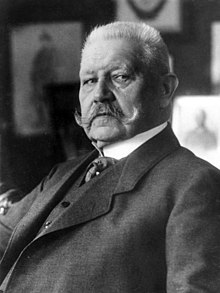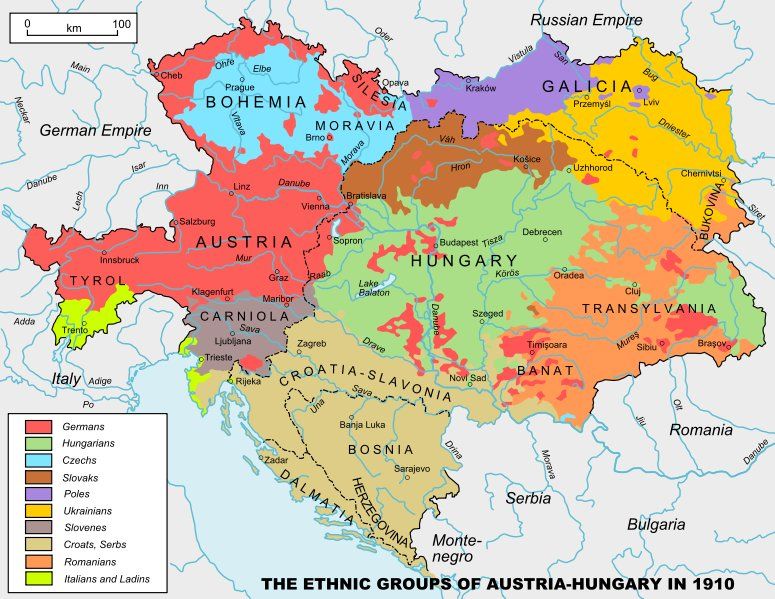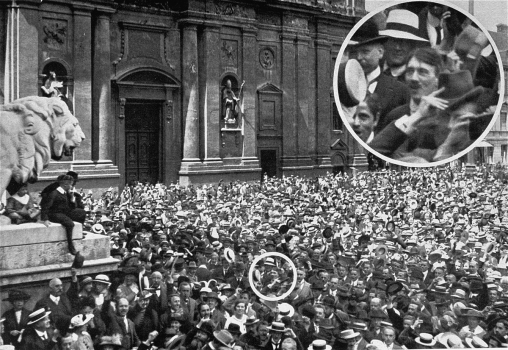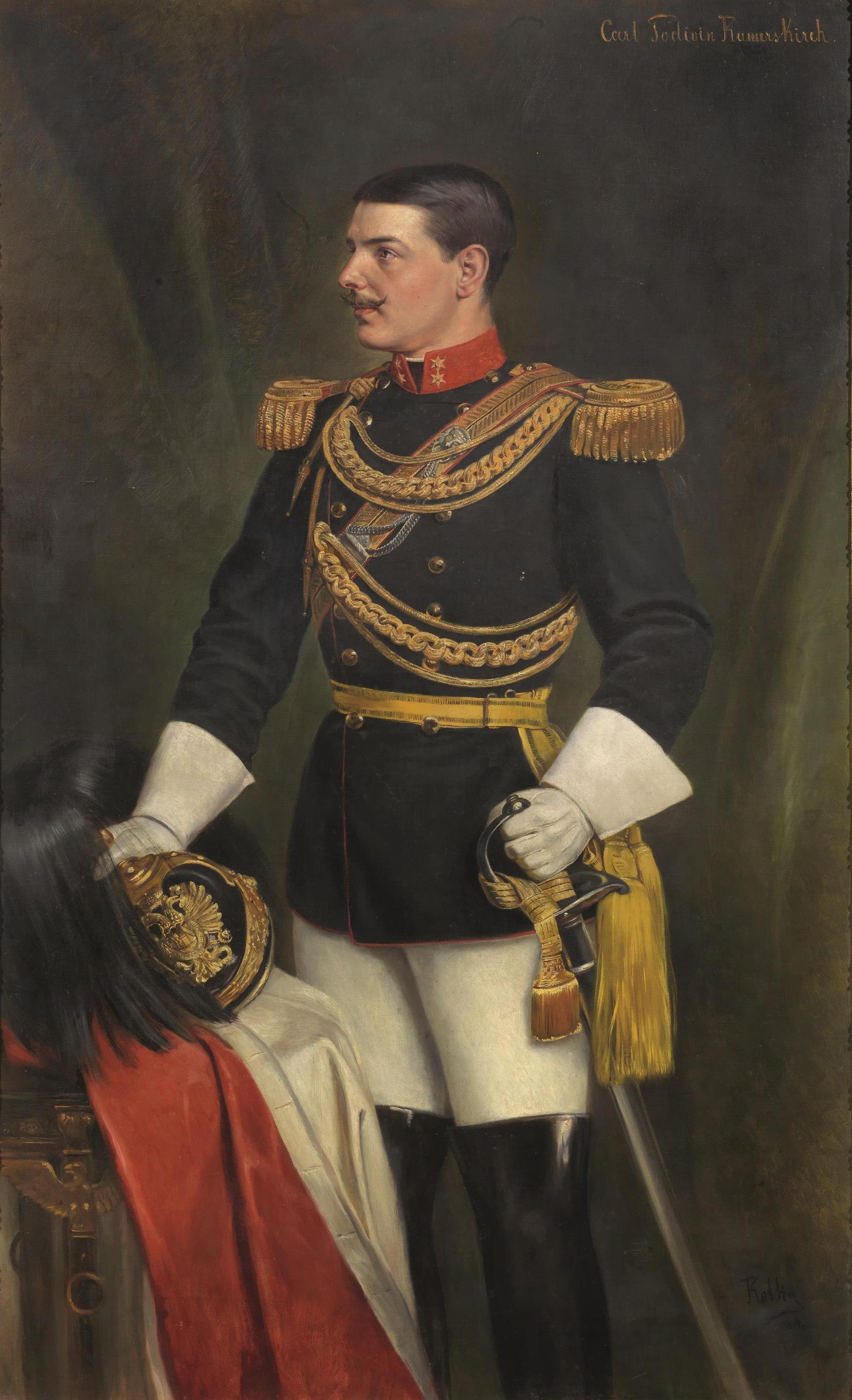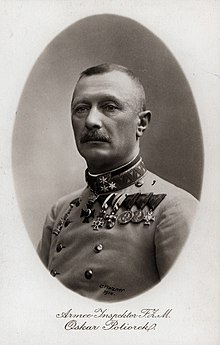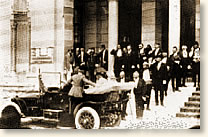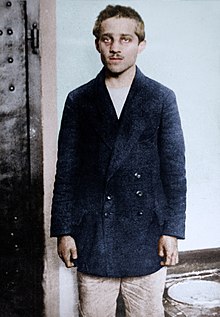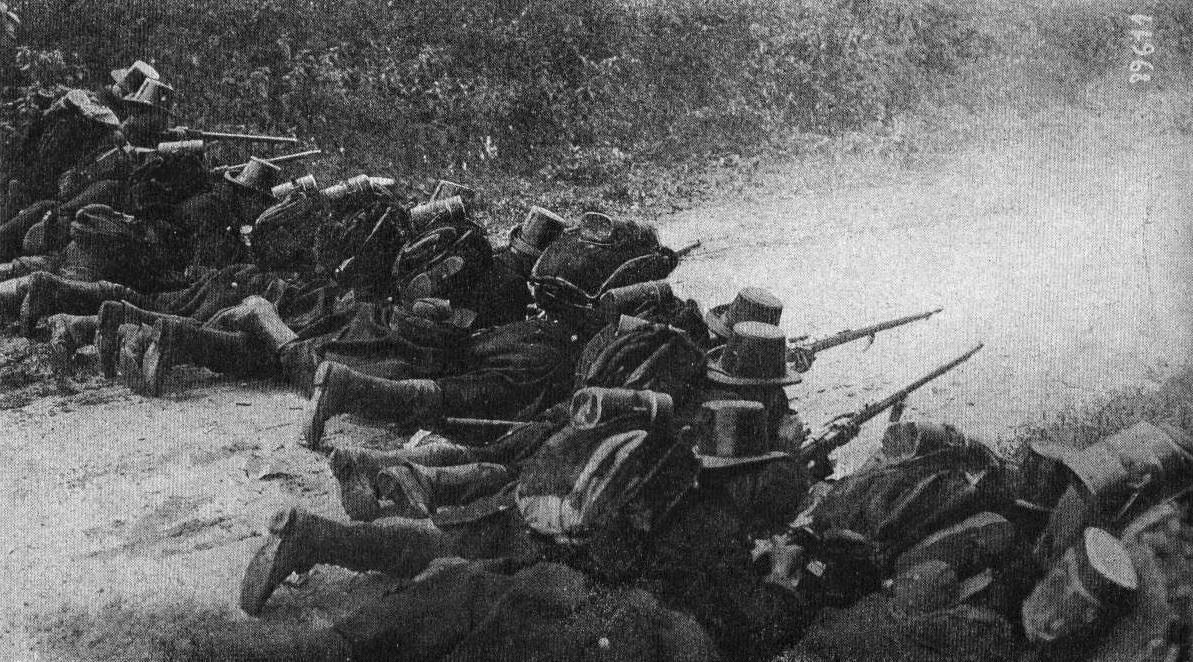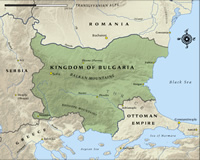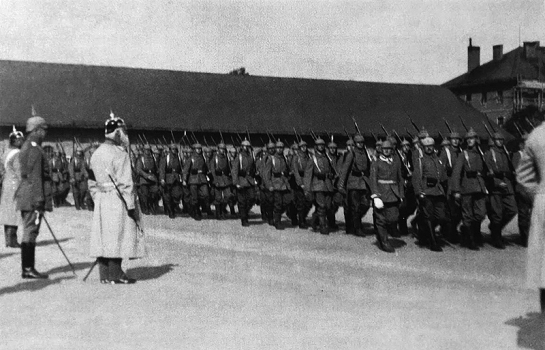He continued for several years to try to become a published author, but his lack of success forced him to take employment as a caller on the stock exchange and as a bank clerk. He was dismissed from the bank in August 1923 and returned to Rheydt. He began reading avidly and was influenced by the works such as Houston Stewart Chamberlain's book The Foundations of the Nineteenth Century. (One of the standard works of the extreme right in Germany.) He also began to study the "social question" and was preoccupied with "religious-philosophical" issues, and lacked a sense of direction.
Goebbels was drawn to the NSDAP mostly because of Hitler. Gregor Strasser hired Goebbels to work on their weekly newspaper and undertake secretarial work for the regional party offices. He was also put to work as party speaker.
Hitler appointed Goebbels the leader for the Berlin section giving him great authority over the area. When Goebbels arrived, and he reduced it to a core of 600 of the most active and promising members. To raise money, he instituted membership fees and began charging admission to party meetings. To get publicity he deliberately provoked beer-hall battles and street brawls. Goebbels used commercial advertising including the use of catchy slogans and subliminal cues.
Goebbels' violent tactics led the Berlin police to ban the NSDAP from the city. Violent incidents continued, including young Nazis randomly attacking Jews in the streets. Goebbels was subjected to a public speaking ban until for a while. During this period, he founded the newspaper Der Angriff (The Attack). Material in the paper was highly anti-communist and antisemitic.
The ban on the NSDAP was lifted before the Reichstag elections in 1928. Goebbels gained election to the Reichstag. This gave him immunity from prosecution for a long list of outstanding charges.
The stock market crash in the United States in October of 1929 direly impacted Germany. Millions were thrown out of work and several major banks collapsed. Hitler and the NSDAP decided to take advantage of the situation. They promised to reject the Versailles Treaty, strengthen the economy, and provide jobs.
The Great Depression and the German referendum(a failed attempt to introduce a Law against the Enslavement of the German People) of 1929 elevated the Nazi ideology. The elections of 1930 resulted in the break-up of a grand coalition (an arrangement in a multi-party parliamentary system in which the two largest political parties of opposing political ideologies unite in a coalition government) and its replacement with a minority cabinet. (Minority cabinets tend to be less stable.)
Chancellor Heinrich Brüning of the Center Party, governed through emergency decrees from President Paul von Hindenburg.
Brüning was born in Münster. He lost his father when he was one year old and so his older brother Hermann was like a father to him. Although brought up in a devoutly Roman Catholic family, Brüning was also influenced by Lutheranism's concept of duty.
He first leaned towards the legal profession but then studied Philosophy, History, German and Political Science at Strasbourg. In 1915, he received a doctorate for his thesis on the financial, economical and legal implications of nationalizing the British railway system. Historian Friedrich Meinecke, one of his professors at Strasbourg with national liberal and anti-semitic views, was a major influence on him.
Brüning volunteered for the infantry and even though he has shortsightedness and was physically weak, he was accepted. He served in World War I and rose to lieutenant in an infantry regiment and company commander by the end of the war. He was cited for bravery and awarded both the second and first class Iron Cross.
Despite having been elected to a soldiers' council after the armistice, Brüning did not approve of the German Revolution.
He preferred to help former soldiers reintegrate into civilian life by assisting them finding employment or further their education.
He collaborated with the social reformer Carl Sonnenschein and worked in the "Secretariat for social student work". After six months he entered the Prussian welfare department and became a close associate of the minister. The minster made Brüning chief executive of the Christian unions.
As the editor of the union newspaper Der Deutsche (The German), he advocated a "social popular state" and "Christian democracy."
In 1923 Brüning was actively involved in organizing the nonviolent resistance campaign "Ruhrkampf".
Brüning joined the Center Party and was elected to the Reichstag, representing Breslau. In parliament, he quickly made a name for himself as a financial expert and managed to push through the Brüning Law, which restricted the workers' share of income taxes.
After his election as leader of the Center Party group in the Reichstag, his party's agreement to the Young Plan was made conditional on paying for it through tax increases and budget cuts.
Brüning was then appointed chancellor by Hindenburg and had the economic crises caused by the Great Depression to deal with. Brüning's tightening of credit and a rollback of all wage and salary increases really made him unpopular. This paved the way for the NSDAP to win 107 parliamentary seats and they became the second-largest party in parliament.
The Nazi party was on a steady rise and so was the turmoil between Geil and an obsessed Hitler. Geli dreamed of becoming a singer someday and wanted to go to escape to Vienna and marry a man there and settle down. Hitler wanted her all to himself and wouldn't allow her to leave him.
On September 18th, 1931, as Hitler was leaving for a meeting in Nuremberg, Geli hung out of the window and yelled something to Hitler. He replied, “No, for the last time, no.”
The next day Hitler was recalled to Munich the next day with the news that 23-year-old Geli was dead. She had been found lying face down on the floor in a pool of blood. She had a hole in her chest where a bullet from Hitler's pistol had obliterated one of her lungs. There was no suicide note, just an enthusiastic letter about future plans to a friend was found, half-written, on her desk.
Geli's death was ruled a suicide. The cause was stated as “unsatisfied artistic achievement.” Oddly, she was buried in a catholic cemetery in Vienna, where suicide cases aren’t allowed.
It was said that Geli's death made Hitler very depressed and moved to a house on the shores of Tegernsee lake. And he did not attend the funeral in Vienna, but he often visited her grave after. Later he declared that Geli was the only woman he had ever loved. Her room at the Berghof was kept as she had left it, and he hung portraits of her in his own room as well as his office.
Many theories even to this day swirl around about Geli's death. Some say that she was driven to suicide by not only Hitler's controlling nature, but that she was sexually abused by him. Other say that Hitler shot Geli himself in the heat of an argument or killed on his orders. Allegedly, Hitler's nephew William Stuart-Houston claimed, "When I visited Berlin in 1931, the family was in trouble. ... Everyone knew that Hitler and she had long been intimate and that she had been expecting a child – a fact that enraged Hitler."
After Geli's "suicide" Braun too attempted suicide by shooting herself in the chest with her father's pistol. She had been deeply committed to her relationship with Hitler, but Hitler spend a great amount of his time on his political career and Braun felt ignored.
After Braun's recovery, Hitler became more committed to her and set her up in a spacious Munich house with a maid. However, Hitler wouldn't let Braun be seen with him in public.The only time Braun could appear on his arm as "chief consort" was when she was playing host to his inner circle.
After Hitler had terminated his Austrian citizenship in 1925, he was stateless, legally unable to run for public office, and still faced the risk of deportation. On February 25th, 1932, the interior minister of Brunswick, who was a member of the NSDAP, appointed Hitler as administrator for the state's delegation to the Reichsrat in Berlin, making Hitler a citizen of Brunswick.
After obtaining citizenship, Hitler decided against Hindenburg in the 1932 presidential elections.
Hindenburg was born in what is now Poznan, Poland. His father was a member of the Prussia nobility and supported the family as an infantry officer and retired as a major. His family were all Lutheran Protestants in the Evangelical Church of Prussia.
He tried to emulate everything about his father that he could and at age 11 Hindenburg entered the Cadet Corps School. And by age 19 he first saw war.
Hindenburg won a decoration during the Austro-Prussian War after he marched on after temporarily knocked unconscious by a bullet that pierced his helmet. And later he became will distinguished in the Franco-Prussian War.
He wrote the field service regulations on field-engineering and on the use of heavy artillery in field engagements.(Both of which were used during the First World War.)
He served in the General Staff with his appointment of 1878. While there he was made a general in 1905.
Hindenburg retired in 1911 so that he could spend time with his wife and children and "to make way for younger men." He had been in the army for 46 years, including 14 years in General Staff positions.
He was called back into military service after the start of World War I to assume command of the German Eighth Army in East Prussia with General Erich Ludendorff as his chief of staff.
Hindenburg won a huge victory for Germany at Tannenburg and eight hundred thousand refugees were able to return to their East Prussian homes. After this, Hindenburg was appointed Commander-in-Chief of the German armies.
Hindenburg was appointed Ober Ost (commander in the east) and was promoted to field marshal.
In a raging snowstorm his forces surprised the Russian flank in the Battle of Łódź, which ended the immediate Russian threat to Silesia and also captured Poland's second largest city.
Hindenburg argued that the Russians could be snared in a cauldron by a southward pincer from East Prussia and a northward pincer from Galicia, using motor vehicles for speed, even though the Russians outnumbered the Germans by three to one. He thought that this could end the war in the Eastern Front. Erich von Falkenhayn, the Chief of Germany's Great General Staff, rejected his plan.
Hindenburg then made plans to eliminate the Russians' remaining toehold in East Prussia by ensnaring them in a pincer movement between the Tenth Army in the north and Eighth Army in the south. It worked and Hindenburg's forces encircled an entire corps and captured more than 100,000 men in the Second Battle of the Masurian Lakes.
During the German offensive to relieve Russian pressure on the Austro-Hungarians to their south, Hindenburg's Ninth and Tenth Army launched diversionary attacks. Three cavalry divisions swept east into Courland, the barren, sandy region near the Baltic coast.
Hindenburg was then ordered to launch a frontal attack in Poland toward the Narew River north of Warsaw. He created Army Group Gallwitz and broke through the Russian lines. One-third of the opposing Russian First Army were casualties in the first five hours and the Russians ended up withdrawing.
Hindenburg continued to rack up victories on the Eastern Front and consequently he was promoted to Field Marshal, finally becoming Army Chief of Staff, replacing Falkenhayn. He immediately appointed Ludendorff his Quartermaster General.
Hindenburg formed what was known as the "Third Supreme Council", a military-industrial dictatorship that held virtually total power.
In 1918, Hindenburg oversaw Germany's largest offensive push of World War I. Russia had already withdrew from the war and Hindenburg believed that by bringing troops from the Eastern Front they had the means to not only halt the Allies, but to push them back. It was a costly offensive that almost succeeded, however an Allied counter-offensive, bolstered by the arrival of U.S. troops, broke through, forcing German to surrender.
In June of 1919, Hindenburg retired once again from the German army, but remained in office. Under the terms of the Treaty of Versailles Hindenburg was due to be tried as a war criminal; however he was a war her and his popularity ensured that he was not even indicted.
In 1925 Hindenburg became President of the Weimar Republic, replacing Friedrich Ebert upon the latter's death.
In 1930 when the depression hit, he appointed a cabinet accountable only to him and authorized Chancellor Heinrich Brüning to dissolve the Reichstag.
Back to the 1932 race between Hitler and Hindenburg for president. Many of Germany's most powerful industrialists supported Hitler and various nationalist, monarchist, Catholic, and republican parties, and some Social Democrats supported Hindenburg.
Hitler's campaign slogan was "Hitler über Deutschland" ("Hitler over Germany") and was one of the first politicians to use aircraft travel effectively and for political purposes. He targeted his political messages specifically at people who had been affected by the inflation and the Depression, such as farmers, war veterans, and the middle class.
Hitler ultimately lost to Hindenburg, but the election established Hitler as a strong force in German politics.



